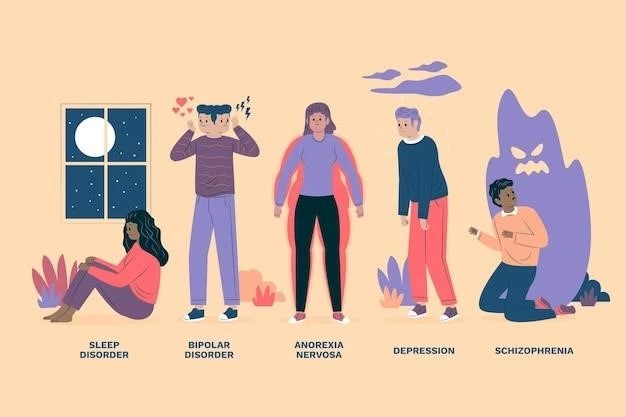Disease ー Iophobia
Welcome to an in-depth exploration of the rare, yet profoundly impactful, disease known as Iophobia. This article aims to provide a comprehensive understanding of the condition, from its definition to its effects on individuals. Stay tuned for valuable insights!
I. Introduction to Iophobia
Iophobia, a lesser-known yet debilitating condition, is a specific phobia characterized by an irrational and excessive fear of poison. Individuals afflicted by Iophobia experience intense dread and anxiety related to the potential exposure to poisonous substances. This phobia can manifest in various ways, from avoidance behaviors to panic attacks in response to stimuli associated with toxins.
Understanding Iophobia is crucial in recognizing the distress it causes and the significant impact it can have on an individual’s quality of life. Through this article, we aim to shed light on the intricacies of this fear-based disorder, examining its signs, causes, and management strategies; Let us delve into the world of Iophobia to unravel its complexities and explore avenues for support and treatment.
II. Understanding Fear and Phobia
To comprehend Iophobia, it is essential first to grasp the concepts of fear and phobia. Fear is a primal emotion triggered by a real or perceived threat, activating our body’s fight-or-flight response. Phobias, on the other hand, are intense, irrational fears categorically linked to specific objects or situations.
In the case of Iophobia, individuals exhibit an overwhelming aversion and apprehension towards toxins or poisoning. This fear extends beyond rational concerns for safety and becomes a source of constant distress and anxiety. Understanding the distinction between normal fear responses and phobic reactions is vital in assessing the impact of Iophobia on an individual’s mental and emotional well-being.
III. Signs and Symptoms of Iophobia
Recognizing the signs and symptoms of Iophobia is paramount in identifying individuals affected by this phobia. Common indicators include an unwavering dread of poisonous substances, heightened anxiety when faced with potential toxins, and a persistent aversion to places or situations associated with poisoning.
Physical manifestations of Iophobia may include rapid heartbeat, sweating, trembling, and shortness of breath when exposed to triggers. Psychological symptoms such as excessive worry, anticipatory anxiety, and a sense of impending doom are also prevalent among those grappling with this fear-based disorder. Understanding and acknowledging these signs can lead to early intervention and appropriate support for individuals battling Iophobia.
IV. Causes and Triggers of Iophobia
The development of Iophobia, like other specific phobias, is often multi-faceted and may stem from various factors. These can include a combination of genetic predispositions, environmental influences, personal experiences, and learned behaviors. Traumatic encounters related to poisoning or toxic substances can significantly contribute to the inception of Iophobia.
Triggers for Iophobia can range from witnessing or experiencing a poisoning incident to exposure to media content depicting harm from toxins. Individuals with Iophobia may also develop the phobia through indirect sources, such as parental phobias or societal influences. Understanding the intricate interplay of causes and triggers is essential in formulating tailored approaches to managing and overcoming Iophobia.
V. Impact of Iophobia on Daily Life
The repercussions of Iophobia on daily life can be profound and pervasive. Individuals living with this phobia may experience a constant state of apprehension and distress, impacting their ability to engage in routine activities. Avoidance of situations or substances perceived as toxic can lead to social isolation, occupational challenges, and diminished quality of life.
The persistent worry and fear associated with Iophobia can also interfere with interpersonal relationships, recreational pursuits, and overall well-being. Physical symptoms induced by anxiety can further exacerbate the toll on daily functioning. Understanding the extensive impact of Iophobia is crucial in implementing strategies to alleviate its effects and enhance individuals’ resilience in navigating daily challenges.
VI. Diagnosis and Treatment Options

Diagnosing Iophobia typically involves a comprehensive assessment by mental health professionals. The evaluation may encompass a review of the individual’s medical history, symptoms, and the impact of the fear of poisons on daily functioning. Psychological assessments, questionnaires, and interviews may aid in confirming the presence of Iophobia;
Once diagnosed, treatment options for Iophobia may include psychotherapy, such as cognitive-behavioral therapy (CBT) to address irrational beliefs and behaviors associated with the phobia. Exposure therapy, relaxation techniques, and medication may also be integrated into treatment plans to alleviate symptoms and enhance coping mechanisms. Collaborating with healthcare providers to tailor an individualized treatment approach is imperative in fostering recovery and promoting mental well-being.
VII. Prevention and Management Techniques
Preventing Iophobia involves early recognition of fear responses related to toxins and implementing effective coping strategies. Education on the facts about poisons, promoting rational thinking patterns, and cultivating resilience against anxiety are key preventive measures. Encouraging open communication about fears and seeking support can aid in averting the escalation of phobic responses.
Management techniques for Iophobia focus on building adaptive skills to confront and alleviate fear. Relaxation exercises, mindfulness practices, and gradual exposure to feared stimuli under supervision are fundamental in desensitizing individuals to their phobic triggers. Developing a robust support network, self-care routines, and consistent therapy can aid in managing the symptoms of Iophobia and enhancing overall well-being.
VIII. Conclusion
In conclusion, Iophobia, characterized by an excessive fear of poisons, manifests as a debilitating phobia that profoundly impacts individuals’ daily lives. Understanding the causes, triggers, symptoms, and treatment options is crucial in addressing this fear-based disorder effectively. By promoting early diagnosis, tailored interventions, and preventive measures, we can strive to enhance the quality of life for those grappling with Iophobia.
Through a holistic approach encompassing psychotherapy, education, and skill-building, individuals affected by Iophobia can embark on a journey towards resilience and recovery. It is essential to destigmatize phobias, foster a supportive environment, and advocate for mental health awareness to empower individuals to proactively manage their fears and lead fulfilling lives free from the constraints of Iophobia.
